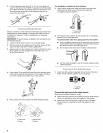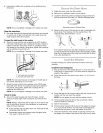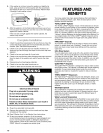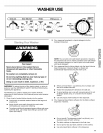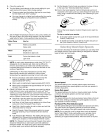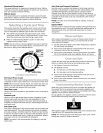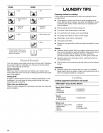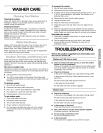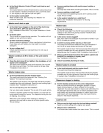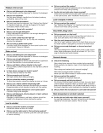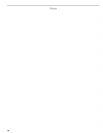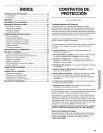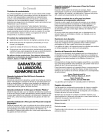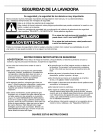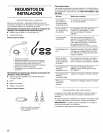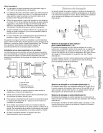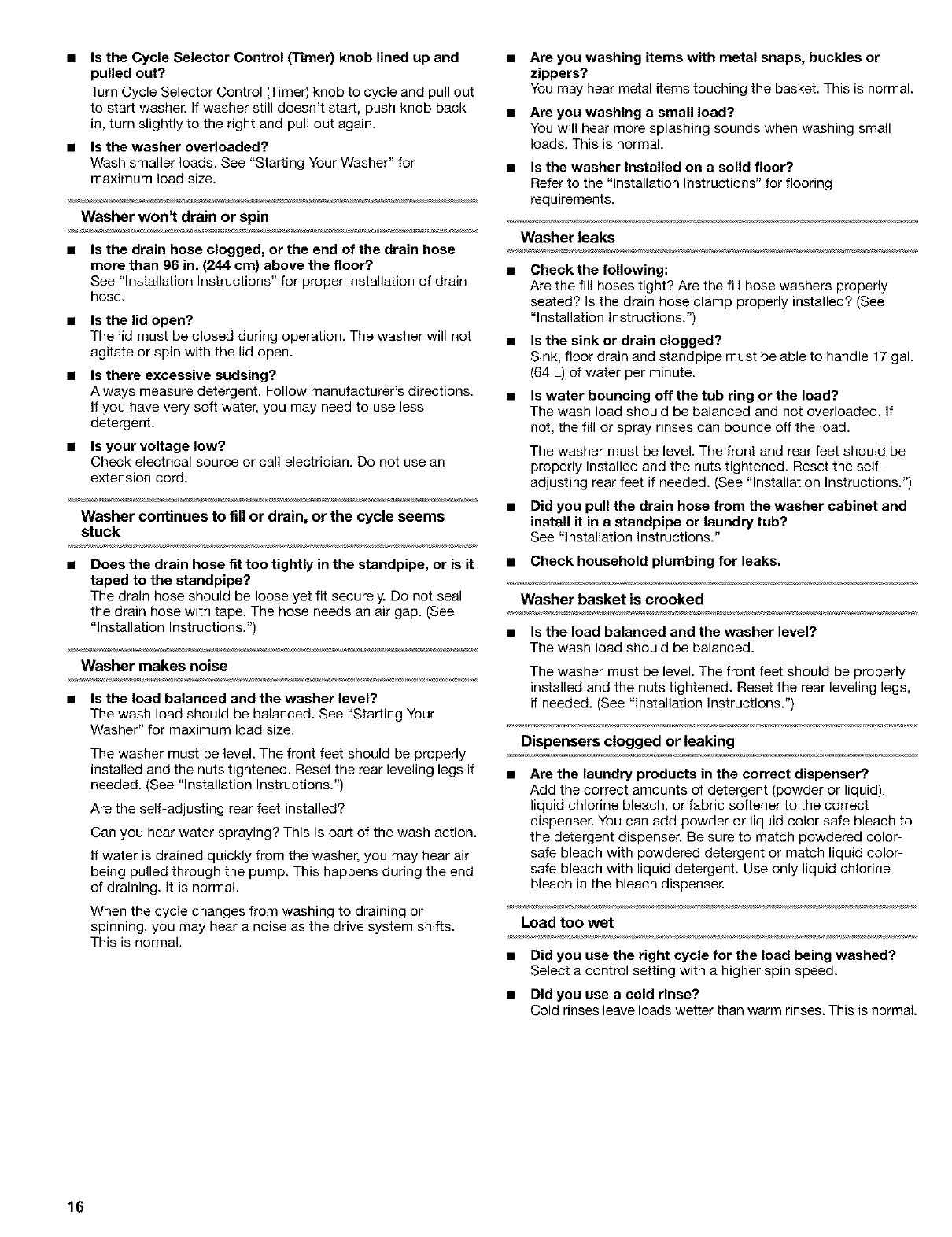
• Are you washing items with metal snaps, buckles or
zippers?
You may hear metal items touching the basket. This is normal.
Is the Cycle Selector Control (Timer) knob lined up and •
pulled out?
Turn Cycle Selector Control 0-imer) knob to cycle and pull out
to start washer. If washer still doesn't start, push knob back •
in, turn slightly to the right and pull out again.
Is the washer overloaded?
Wash smaller loads. See "Starting Your Washer" for
maximum load size.
Washer won't drain or spin
Is the drain hose clogged, or the end of the drain hose
more than 96 in. (244 cm) above the floor?
See "Installation Instructions" for proper installation of drain
hose.
Is the lid open?
The lid must be closed during operation. The washer will not
agitate or spin with the lid open.
Is there excessive sudsing?
Always measure detergent. Follow manufacturer's directions.
If you have very soft water, you may need to use less
detergent.
Is your voltage low?
Check electrical source or call electrician. Do not use an
extension cord.
Washer continues to fill or drain, or the cycle seems
stuck
Does the drain hose fit too tightly in the standpipe, or is it
taped to the standpipe?
The drain hose should be loose yet fit securely. Do not seal
the drain hose with tape. The hose needs an air gap. (See
"Installation Instructions.")
Washer makes noise
• Is the load balanced and the washer level?
The wash load should be balanced. See "Starting Your
Washer" for maximum load size.
The washer must be level. The front feet should be properly
installed and the nuts tightened. Reset the rear leveling legs if
needed. (See "Installation Instructions.")
Are the self-adjusting rear feet installed?
Can you hear water spraying? This is part of the wash action.
If water is drained quickly from the washer, you may hear air
being pulled through the pump. This happens during the end
of draining. It is normal.
When the cycle changes from washing to draining or
spinning, you may hear a noise as the drive system shifts.
This is normal.
Are you washing a small load?
You will hear more splashing sounds when washing small
loads. This is normal.
• Is the washer installed on a solid floor?.
Refer to the "installation Instructions" for flooring
requirements.
Washer leaks
Check the following:
Are the fill hoses tight? Are the fill hose washers properly
seated? Is the drain hose clamp properly installed? (See
"installation Instructions.")
Is the sink or drain clogged?
Sink, floor drain and standpipe must be able to handle 17 gal.
(64 L) of water per minute.
Is water bouncing off the tub ring or the load?
The wash load should be balanced and not overloaded. If
not, the fill or spray rinses can bounce off the load.
The washer must be level. The front and rear feet should be
properly installed and the nuts tightened. Reset the self-
adjusting rear feet if needed. (See "Installation Instructions.")
Did you pull the drain hose from the washer cabinet and
install it in a standpipe or laundry tub?
See "Installation Instructions."
• Check household plumbing for leaks.
Washer basket is crooked
• Is the load balanced and the washer level?
The wash load should be balanced.
The washer must be level. The front feet should be properly
installed and the nuts tightened. Reset the rear leveling legs,
if needed. (See "installation Instructions.")
Dispensers clogged or leaking
• Are the laundry products in the correct dispenser?.
Add the correct amounts of detergent (powder or liquid),
liquid chlorine bleach, or fabric softener to the correct
dispenser. You can add powder or liquid color safe bleach to
the detergent dispenser. Be sure to match powdered color-
safe bleach with powdered detergent or match liquid color-
safe bleach with liquid detergent. Use only liquid chlorine
bleach in the bleach dispenser.
Load too wet
• Did you use the right cycle for the load being washed?
Select a control setting with a higher spin speed.
• Did you use a cold rinse?
Cold rinses leave loads wetter than warm rinses. This is normal.
16



